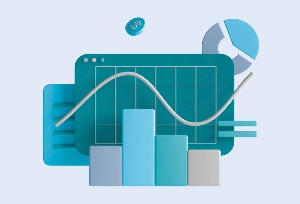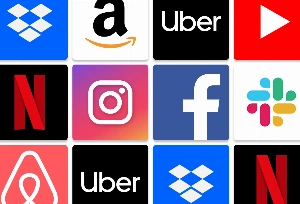Financial services are at the backbone of every economy. Every second, thousands of people use these services to save their money, pay for goods or services, or take on credit. These services are mainly provided and controlled by a central body. This centralized system means that only one party determines how the services are provided and who they are given to. In this system, there are those that are lucky to be in countries where they can access such services and those who are in places where they can’t. Other shortcomings of centralized services include censorship, lack of transparency, and counterparty risk. But today, entrepreneurs and software developers are building new decentralized financial systems to replace the old ones.
What Does the Decentralized Financial System Mean?
First and foremost, what is a decentralized financial system? The decentralized financial system is an alternative to the current global financial ecosystem. It is built on blockchain technology where users can store or transfer their wealth and even borrow some amounts without going through an intermediary. Decentralized systems, or public blockchains, have no restrictions for entry – a person’s wealth, status, or location cannot prohibit them from entering the network. No central party is required to validate or authorize transactions on decentralized networks, and neither can one entity invalidate a transfer, undo changes, or shut down the system. Decentralized networks are also censorship-resistant, transparent, and programmable.
Some examples of decentralized finance projects today include:
- Bitcoin
- Ethereum
- Dharma protocol
- Gemini Dollar
- Circle
- Tether
The Global Influence of Decentralized Financial Systems
According to Statista, spending on blockchain solutions is projected to increase from $1.5 billion in 2018 to $11.7 billion in 2022. The financial industry took up more than 60% of the blockchain market value globally in 2018.
Decentralized finance systems have and will continue to have these impacts on the global financial market:
Greater access to financial services
Recent data has shown that over 1.7 billion adults have no access to a bank account. In a decentralized system, all you need to access financial services is a smartphone and internet connection. Things that would bar you from accessing the centralized financial system like wealth, location, citizenship, credentials, don’t matter here. In this system, everyone enjoys the same level of access.
Simplicity
Decentralized financial networks are not as complicated for users, as centralized systems are. Through interoperable apps, people can receive loans from anywhere, invest in businesses around the world, buy properties, and so on, with ease.
Lower costs for international payments
The charges for sending money abroad are prohibitive. According to a June 2019 report by the World Bank, the global average cost for sending remittances is 6.84%. Banks are ranked as the most expensive service providers with an average rate of 10.49%. As decentralized finance eliminates the cost of intermediaries, remittance services become more affordable to the population.
Wealth protection from censorship
People can protect their wealth by storing it in decentralized systems. That’s because decentralized finance is immune to censorship and manipulation by central banks, large financial corporations, or governments.
Increased security and privacy
In the current central system, custodial banks and financial institutions risk customers’ money or information if they don’t secure it. In a decentralized network, users have control over their wealth and can perform transactions securely without central party validation.
What Prevents Financial Institutions from Adopting This Tech?
A complete transition to a decentralized economy can be difficult because of the existence of governments and central banks who act as the central authorities. These bodies are responsible for setting the regulatory and compliance standards that financial institutions must abide by. Therefore, banks are bound by these bodies in their functions. Implementing decentralized finance systems means taking the power that the government and central banks and giving it to the users, which goes against the very foundation of centralized systems.
Take Away
The trends we see today in the financial sector can only tell you one thing: the complete digitization of services in finance is inevitable in the future. People who are disenfranchised or disgruntled with the current financial environment will continue to move to decentralized financial systems. To survive in the years to come, financial institutions cannot afford to ignore this emerging technology.
Want to learn more about financial digitization and how it can affect you? Read why should financial services adopt digital tokens.





_1758804763-small.webp)
